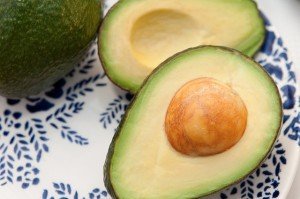Avocado seeds make up more than 18% of the deliciously creamy avocado fruit and are often tossed aside habitually. However, the seeds have been found to contain more than 70% of the antioxidant content in each avocado, making it an excellent source of nutrition with multiple health benefits.
The incredible fiber content combined with natural oils, vitamins and minerals lead to improved digestion, reduced inflammation and have even been linked to preventing the development of cancer cells. While it may seem unconventional to keep the seed, it’s as easy as slicing it into quarters and blending it into juices, smoothies and sauces for an incredible health kick. It can also be ground separately into a powder and sprinkled into meals and creative recipes, helping you to reach new heights of health with minimal effort.
Here are 10 health benefits of eating an avocado seed:
1. Rich Source of Antioxidants
The National University of Singapore conducted a study in 2003 to observe the antioxidant content in the seeds avocados, mangoes and other tropical fruit. It found that the seeds of the fruit contained 70% more antioxidant value than the fruit itself which, if eaten, can help to prevent oxidative stress at a cellular level in the body.
Antioxidants reduce cellular aging, fight inflammation and improve the condition of the entire body.
2. Helps to Prevent Cancer
Decades of research have gone into finding a cure for multiple types of cancer, but one study that has recently gained attention is the link between avocado seeds and the prevention of Acute Myeloid Leukemia (AML). AML originates in bone marrow and, once developed, spreads to the bloodstream in the form of leukemia.
In April 2015 scientists from the University of Waterloo and Mount Sinai Hospital in Canada teamed up with scientists from the University of Perugia in Italy to study the effect of various untested compounds on AML cancer cells, and avocado pits proved to be the most effective.
A compound known as avocatin B was found to not only destroy AML cancer cells but also to have zero negative side effects on healthy blood cells, something which current cancer treatments cannot include.
3. Heals Digestive Disorders
South Americans have been familiar with the digestive benefits that avocado seeds contain for hundreds of years and have been using it to treat ulcers, constipation and diarrhea.
Avocado seeds contain soluble fiber and powerful anti-inflammatory compounds which help to reduce flatulence and bloating and eliminates toxins and waste that can cause complications.
4. Helps to Lower Cholesterol and Prevent Heart Disease
Dr. Tom Wu, a physician who has been honored by both the American Cancer Society and the United Nations has confirmed that avocado seeds offer some of the most intense amounts of soluble fiber compared to any other natural food source.
Soluble fiber helps to rid the cardiovascular system of plaque buildup and cholesterol, which helps to prevent heart disease, heart failure and stroke. In particular, avocado seeds help to lower LDL (bad) cholesterol levels and contain essential fatty acids that help to raise the HDL (good) cholesterol levels, which helps to restore a healthy cholesterol balance.
5. Helps to Prevent Cravings and Increases Fat Loss
The high amount of soluble and insoluble fiber contained in each avocado pit will help to keep you feeling fuller for longer, which reduces cravings in between meals and can encourage accelerated fat loss.
It also helps to eliminate excess toxins and waste, which improves nutrient absorption and boosts metabolism, helping to improve the rate at which food is broken down. This means a leaner, healthier composition from just one simple ingredient.
6. Helps to Prevent Blood Sugar Imbalance
A diet high in fiber and low in sugar helps to prevent blood sugar spikes and dips and can prevent the development of Type 2 Diabetes.
Avocado seeds are the perfect addition to any smoothie or meal as the rich source of fiber helps to balance out any intake of sugar, keeping blood sugar levels stable.
7. Reduces Inflammation
Avocado seeds contain powerful anti-inflammatory compounds known as catechins and procyanidins which help to reduce the risk of developing chronic inflammation.
Chronic inflammation can lead to a number of diseases and discomforts, such as arthritis, hypertension and even Alzheimer’s disease, which makes it an important issue to face and manage.
8. Improves the Health and Appearance of Skin
The intense burst of antioxidants in each avocado pit helps to reduce oxidative stress caused by the sun’s harmful UV rays as well as pollution, chemicals and our modern environment. This helps to reduce the visible signs of aging, as well as rejuvenating the tone and condition of skin tissue.
Avocado seeds also contain nourishing oils which help to smooth wrinkles and improve the elasticity of skin, making you look younger and healthier in just one simple step.
A test tube study was carried out by the Brazilian Society of Tropical Medicine in 2009 to observe the effect that avocado seed extract had on candida, fungal infections and bacteria.
Researchers found that avocado seed extract helped to inhibit pathogens such as fungal bacteria and candida. Interestingly, it also helped to prevent yellow fever. Adding avocado seed to your diet may help to reduce fungal infections and restore the balance of good bacteria in the digestive tract.
10. Excellent Source of Potassium
An article published by the California Avocado Society indicates that avocado seeds are a rich source of potassium, which makes it an excellent source of fluid-balancing nutrition.
Potassium helps to eliminate excess toxins and fluid from the body as well as reducing muscle cramps.
How Can You Include Avocado Seeds in Your Diet?
Avocado seeds are not as strong as they look and can be easily sliced into quarters. Thereafter, add it to a blender or grinder to make a bitter and tannin-rich powder for future use in sauces, soups and smoothies. Alternatively, it can be added immediately to a smoothie for a healthier drink- just be sure to use a high powered blender!
References:
https://www.ncbi.nlm.nih.gov/pubmed/23448442
https://www.ncbi.nlm.nih.gov/pmc/articles/PMC3664913/
https://www.ncbi.nlm.nih.gov/pmc/articles/PMC3664913/
https://en.wikipedia.org/wiki/Potassium
https://en.wikipedia.org/wiki/Dietary_fiber
https://www.nlm.nih.gov/medlineplus/dietaryfiber.html







